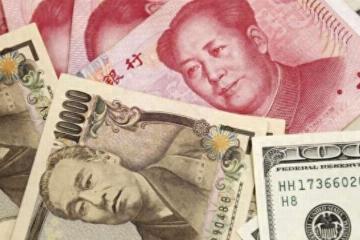In recent months, a notable shift has taken place in the international treasury bond market, particularly concerning the United StatesHistorically, the U.STreasury has been considered a safe haven for investors around the globe, but recent reports show that major holders of U.S. debt, namely China and Japan, are beginning to reduce their investments significantlyThis development has stirred up a significant amount of discussion not just about monetary policy, but also regarding geopolitical strategy and economic stability.
The latest report from the U.STreasury Department indicates that, as of mid-December 2023, both China and Japan have decreased their holdings of U.STreasury bondsIn October alone, China divested approximately $11.9 billion, bringing its total holdings down to about $760.1 billion, the lowest level since 2009. Japan, facing its own economic challenges, saw a reduction of $20.6 billion in its holdings
The implications of these actions are substantial, as they reflect broader changes in the economic landscape and investor sentiment toward U.S. debt.
This collective withdrawal from U.S. debt by major economics creates a larger question mark over the stability and attractiveness of Treasury bondsHistorically favored for their perceived safety and liquidity, the current state brings forward concerns about the underlying economic strategies and potential repercussions for the American financial system.
One possible explanation for China’s reduction in Treasury holdings is its desire to diversify investments and strengthen national securityWith rising tensions in international relations and dependence on the dollar, China appears to be proactively mitigating risks associated with holding too much U.S. debtThis perspective is underscored by the increasing geopolitical maneuvering and trade disputes that have defined U.S.-China relations in recent years.
On the other hand, Japan’s decision to sell off portions of its U.S. debt seems driven by necessity rather than choice
- Dollar/Yen Hits Five-Month High
- Slight Decline in the Dollar Index
- AI Revolutionizes Home Decoration
- Dollar Retreats, Oil Prices Rebound
- The Secret Behind Visual China's Stock Surge
The economic pressure exerted by a depreciating yen has prompted Japan to take steps to stabilize its currency, resulting in the liquidation of U.STreasury securitiesIn an environment marked by low interest rates domestically and rising global rates, these measures reflect Japan’s struggle to handle its own economic challenges effectively.
Japan has been grappling with a high debt-to-GDP ratio for years, and as it further reduces its Treasury holdings, the implications for its economic policy and fiscal sustainability are profoundAs it navigates these tough financial waters, Japan's actions serve as a cautionary tale about the dangers of being overexposed to any single asset class, particularly in times of economic uncertainty.
The drawdown from both nations has exposed significant vulnerabilities within the U.S. fiscal structureAnalysts suggest that the ongoing trend could lead to a liquidity crisis in the U.S. bond market, particularly as the country grapples with its ballooning debt, projected to increase by approximately $7.5 trillion over the next four years according to federal budget estimates
With mounting fiscal deficits, the attractiveness of U.S. bonds may diminish, complicating the task of financing additional debt.
As the Federal Reserve has raised interest rates in an effort to combat inflation—estimates show that inflation may reach 4.8% in 2024—it has inadvertently put further strain on domestic consumption and investmentThe dual pressure of rising debt and comparatively stagnant economic growth calls into question the sustainability of the U.S. dollar's dominance in the global economic landscape.
The response from U.S. officials has been predictably aggressiveTreasury Secretary Janet Yellen recently indicated the possibility of economic sanctions against entities in China, especially those cooperating with Russia, illustrating the lengths to which the U.S. government is willing to go to maintain its fiscal influenceHowever, this harsh stance may backfire, pushing nations like China closer together and encouraging them to reinforce their shared ambitions of reducing dollar dependency.
As both China and Japan pivot away from U.S. bonds, this shift reveals deep-seated changes within the global economic order
These nations' actions could indicate a broader trend of diversification among global investors, seeking to reduce exposure to U.S. assets that are increasingly seen as precariousChina's and Japan's calculated moves could pave the way for a reconfiguration of international investment norms and patterns.
Ultimately, the challenges posed by the reduction in U.S. debt holdings compel scrutiny of the systemic flaws in U.S. fiscal managementThe path forward will depend heavily on the ability of the U.S. government to restore confidence among international investors while managing its growing debt burdenThis will necessitate both fiscal responsibility and strategic clarity in economic policies moving forward.
In continental shifts within investment strategies by key global players, the fundamental truth remains evident: the landscape of international finance is in fluxCountries worldwide are reevaluating their allocations amidst an increasingly volatile environment characterized by rising interest rates, geopolitical tensions, and fluctuating currencies

It is imperative for nations like China and Japan to enhance their economic resilience, not just to safeguard themselves against potential shocks, but also to claim their rightful place on the global economic stage.
In conclusion, as China and Japan scale back their investments in U.STreasury securities, we are witnessing not just an economic recalibration but also a realignment of power dynamics within the global economyThe extent to which the U.S. can regain investor trust while managing its debt will often dictate the future trajectory of its financial, political, and economic influence in the years to comeThe evolving landscape will undoubtedly provide a fascinating context for understanding the interplay of international economics and geopolitical strategy as nations navigate these turbulent waters.
Your thoughts and comments are encouraged as we continue to analyze these developments